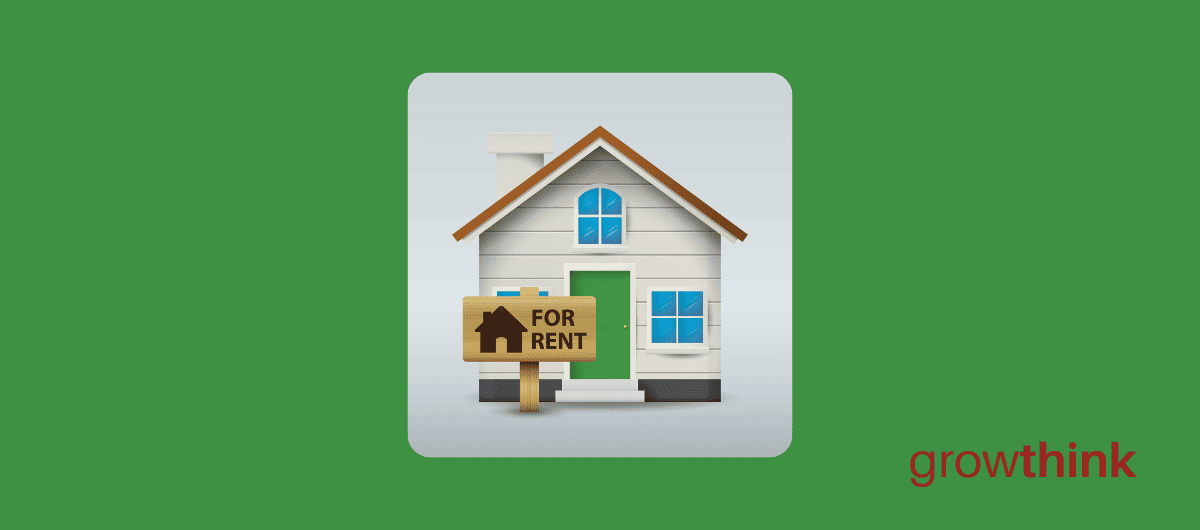
Starting a rental property business can be very profitable. With proper planning, execution and hard work, you can enjoy great success. Below you will learn the keys to launching a successful rental property business.
Importantly, a critical step in starting a rental property business is to complete your business plan. To help you out, you should download Growthink’s Ultimate Business Plan Template here.
14 Steps To Start a Rental Property Business:
- Choose the Name for Your Rental Property Business
- Develop Your Rental Property Business Plan
- Choose the Legal Structure for Your Rental Property Business
- Secure Startup Funding for Your Rental Property Business (If Needed)
- Secure a Location for Your Business
- Register Your Rental Property Business with the IRS
- Open a Business Bank Account
- Get a Business Credit Card
- Get the Required Business Licenses and Permits
- Get Business Insurance for Your Rental Property Business
- Buy or Lease the Right Rental Property Business Equipment
- Develop Your Rental Property Business Marketing Materials
- Purchase and Setup the Software Needed to Run Your Rental Property Business
- Open for Business
1. Choose the Name for Your Rental Property Business
The first step to starting a rental property business is to choose your business’ name.
This is a very important choice since your company name is your brand and will last for the lifetime of your business. Ideally you choose a name that is meaningful and memorable. Here are some tips for choosing a name for your rental property business:
- Make sure the name is available. Check your desired name against trademark databases and your state’s list of registered business names to see if it’s available. Also check to see if a suitable domain name is available.
- Keep it simple. The best names are usually ones that are easy to remember, pronounce and spell.
- Think about marketing. Come up with a name that reflects the desired brand and/or focus of your rental property business.
2. Develop Your Rental Property Business Plan
One of the most important steps in starting a rental property business is to develop your rental property business plan. The process of creating your plan ensures that you fully understand your market and your business strategy. The plan also provides you with a roadmap to follow and if needed, to present to funding sources to raise capital for your business.
Your business plan should include the following sections:
- Executive Summary – this section should summarize your entire business plan so readers can quickly understand the key details of your rental property business.
- Company Overview – this section tells the reader about the history of your rental property business and what type of rental property business you operate. For example, are you an industrial, commercial, or residential property business?
- Industry Analysis – here you will document key information about the real estate investing industry. Conduct market research and document how big the industry is and what trends are affecting it.
- Customer Analysis – in this section, you will document who your ideal or target customers are and their demographics. For example, how old are they? Where do they live? What do they find important when purchasing products or services like the ones you will offer?
- Competitive Analysis – here you will document the key direct and indirect competitors you will face and how you will build competitive advantage.
- Marketing Plan – your marketing plan should address the 4Ps: Product, Price, Promotions and Place.
- Product: Determine and document what products/services you will offer
- Prices: Document the prices of your products/services
- Place: Where will your business be located and how will that location help you increase sales?
- Promotions: What promotional methods will you use to attract customers to your rental property business? For example, you might decide to use pay-per-click advertising, public relations, search engine optimization and/or social media marketing.
- Operations Plan – here you will determine the key processes you will need to run your day-to-day operations. You will also determine your staffing needs. Finally, in this section of your plan, you will create a projected growth timeline showing the milestones you hope to achieve in the coming years.
- Management Team – this section details the background of your company’s management team.
- Financial Plan – finally, the financial plan answers questions including the following:
- What startup costs will you incur?
- How will your rental property business make money?
- What are your projected sales and expenses for the next five years?
- Do you need to raise funding to launch your business?
Finish Your Business Plan Today!
If you’d like to quickly and easily complete your business plan, download Growthink’s Ultimate Business Plan Template and complete your plan and financial model in hours.
3. Choose the Legal Structure for Your Rental Property Business
Next you need to choose a legal structure for your rental property business and register it and your business name with the Secretary of State in each state where you operate your business.
Below are the five most common legal structures:
1) Sole proprietorship
A sole proprietorship is a business entity in which the owner of the rental property business and the business are the same legal person. The owner of a sole proprietorship is responsible for all debts and legal obligations of the business. There are no formalities required to establish a sole proprietorship, and it is easy to set up and operate. The main advantage of a sole proprietorship is that it is simple and inexpensive to establish. The main disadvantage is that the owner is liable for all debts and obligations of the business.
2) Partnerships
A partnership is a legal structure that is popular among small businesses. It is an agreement between two or more people who want to start a rental property business together. The partners share in the profits and losses of the business.
The advantages of a partnership are that it is easy to set up, and the partners share in the profits and losses of the business. The disadvantages of a partnership are that the partners are jointly liable for the debts of the business, and disagreements between partners can be difficult to resolve.
3) Limited Liability Company (LLC)
A limited liability company, or LLC, is a type of business entity that provides limited liability to its owners. This means that the owners of an LLC are not personally responsible for the debts and liabilities of the business. The advantages of an LLC for a rental property business include flexibility in management, pass-through taxation (avoids double taxation as explained below), and limited personal liability. The disadvantages of an LLC include lack of availability in some states and self-employment taxes.
4) C Corporation
A C Corporation is a business entity that is separate from its owners. It has its own tax ID and can have shareholders. The main advantage of a C Corporation for a rental property business is that it offers limited liability to its owners. This means that the owners are not personally responsible for the debts and liabilities of the business. The disadvantage is that C Corporations are subject to double taxation. This means that the corporation pays taxes on its profits, and the shareholders also pay taxes on their dividends.
5) S Corporation
An S Corporation is a type of corporation that provides its owners with limited liability protection and allows them to pass their business income through to their personal income tax returns, thus avoiding double taxation. There are several limitations on S Corporations including the number of shareholders they can have among others.
Once you register your rental property business, your state will send you your official “Articles of Incorporation.” You will need this among other documentation when establishing your banking account (see below). We recommend that you consult an attorney in determining which legal structure is best suited for your company.
Incorporate Your Business at the Guaranteed Lowest Price
We are proud to have partnered with Business Rocket to help you incorporate your business at the lowest price, guaranteed.
Not only does BusinessRocket have a 4.9 out of 5 rating on TrustPilot (with over 1,000 reviews) because of their amazing quality…but they also guarantee the most affordable incorporation packages and the fastest processing time in the industry.
Incorporate with BusinessRocket at the guaranteed lowest price now.
4. Secure Startup Funding for Your Rental Property Business (If Needed)
In developing your rental property business plan, you might have determined that you need to raise funding to launch your business.
If so, the main sources of funding for a rental property business to consider are personal savings, family and friends, credit card financing, bank loans, crowdfunding and angel investors. Angel investors are individuals who provide capital to early-stage businesses. Angel investors typically will invest in a rental property business that they believe has high potential for growth.
5. Secure a Location for Your Business
When looking for a location to start your rental property investment, it’s important to find an area with a strong economy and a growing population. You’ll also want to make sure the area has a good mix of commercial and residential properties. You can find these characteristics using a population and business database, as well as through your local Chamber of Commerce. Once you have a prospective location, visit the area to find any other factors, such as zoning regulations or tax rates that may affect your business.
6. Register Your Rental Property Business with the IRS
Next, you need to register your business with the Internal Revenue Service (IRS) which will result in the IRS issuing you an Employer Identification Number (EIN).
Most banks will require you to have an EIN in order to open up an account. In addition, in order to hire employees, you will need an EIN since that is how the IRS tracks your payroll tax payments.
Note that if you are a sole proprietor without employees, you generally do not need to get an EIN. Rather, you would use your social security number (instead of your EIN) as your taxpayer identification number.
7. Open a Business Bank Account
It is important to establish a bank account in your rental property business’ name. This process is fairly simple and involves the following steps:
- Identify and contact the bank you want to use
- Gather and present the required documents (generally include your company’s Articles of Incorporation, driver’s license or passport, and proof of address)
- Complete the bank’s application form and provide all relevant information
- Meet with a banker to discuss your business needs and establish a relationship with them
8. Get a Business Credit Card
You should get a business credit card for your rental property business to help you separate personal and business expenses.
You can either apply for a business credit card through your bank or apply for one through a credit card company.
When you’re applying for a business credit card, you’ll need to provide some information about your business. This includes the name of your business, the address of your business, and the type of business you’re running. You’ll also need to provide some information about yourself, including your name, Social Security number, and date of birth.
Once you’ve been approved for a business credit card, you’ll be able to use it to make purchases for your business. You can also use it to build your credit history which could be very important in securing loans and getting credit lines for your business in the future.
9. Get the Required Business Licenses and Permits
To start an investment property business, you will need to obtain a business license and a zoning permit. You may also need to obtain other permits, depending on your state and locality. To learn more about the licenses and permits you need to start your business, contact your local government office.
10. Get Business Insurance for Your Rental Property Business
There are a few different types of insurance that are important for a rental property business.
Business insurance policies that you should consider for your rental property business include:
- General liability insurance: This covers accidents and injuries that occur on your property. It also covers damages caused by your employees or products.
- Auto insurance: If a vehicle is used in your business, this type of insurance will cover if a vehicle is damaged or stolen.
- Workers’ compensation insurance: If you have employees, this type of policy works with your general liability policy to protect against workplace injuries and accidents. It also covers medical expenses and lost wages.
- Commercial property insurance: This covers damage to your property caused by fire, theft, or vandalism.
- Business interruption insurance: This covers lost rental income and expenses if your business is forced to close due to a covered event.
- Professional liability insurance: This protects your business against claims of professional negligence.
Find an insurance provider, tell them about your business and its needs, and they will recommend policies that fit those needs.
11. Buy or Lease the Right Rental Property Business Equipment
The basic equipment you will need is a computer, printer, and telephone. You will also need to have an adequate software program to keep track of your finances and a good database program to keep track of your tenants. In addition, you will need a camera to take pictures of the property and good word processing software to create leases and other legal documents.
12. Develop Your Rental Property Business Marketing Materials
Marketing materials will be required to attract and retain customers to your rental property business.
The key marketing materials you will need are as follows:
- Logo: Spend some time developing a good logo for your rental property business. Your logo will be printed on company stationery, business cards, marketing materials and so forth. The right logo can increase customer trust and awareness of your brand.
- Website: Likewise, a professional rental property business website provides potential tenants with information about the products and/or services you offer, your company’s history, and contact information. Importantly, remember that the look and feel of your website will affect how customers perceive you.
- Social Media Accounts: establish social media accounts in your company’s name. Accounts on Facebook, Twitter, LinkedIn and/or other social media networks will help customers and others find and interact with your rental property business.
13. Purchase and Setup the Software Needed to Run Your Rental Property Business
There are a few different software programs that you will need to run a rental property business. The first is a property management program that can help you track your income and expenses, as well as keep records of your tenants. You’ll also need accounting software to help you keep track of your finances and a good communication program to stay in touch with your tenants.
14. Open for Business
You are now ready to open your rental property business. If you followed the steps above, you should be in a great position to build a successful business. Below are answers to frequently asked questions that might further help you.
How to Finish Your Ultimate Business Plan in 1 Day!
Don’t you wish there was a faster, easier way to finish your rental property business plan?
With Growthink’s Ultimate Business Plan Template you can finish your plan in just 8 hours or less!
Click here to finish your rental property business plan today.
How to Start a Rental Property Business FAQs
Is it hard to start a rental property business?
Some people may find it hard to start a rental property business because of the amount of research and planning that is needed beforehand. However, with enough preparation and organization, anyone can do it with the right tools and resources.
How can I start a rental property business with no experience?
There are a few preliminary steps you need to take before starting a rental property business. The first is to do your research and figure out what specific type of rental property you want to invest in. You also need to become familiar with the applicable laws and regulations in your area.
Once you have a clear understanding of what you're getting into, the next step is to create a business plan. This document will outline your goals, strategies, and tactics for how you plan to achieve success in the rental property business.
If you don't have any experience in the rental property industry, it's a good idea to seek out some professional help. There are many consultants and companies that offer services specifically for people who want to get into the rental property business.
Once you've got the legal and professional aspect of your business plan out of the way, you can focus on acquiring a rental property. While there are many ways to go about this, it's best to get help from an experienced person or company that deals specifically in real estate investing.
What type of rental property business is most profitable?
There is no one definitive answer to this question. Different rental businesses have different levels of profitability, depending on a variety of factors including location, quality of the property, and competition. However, some rental businesses are more profitable than others.
One particularly profitable type of rental business is traditional or short term rental properties. These property rentals can be exceptionally lucrative, as landlords can charge high rents for prime properties.
How much does it cost to start a rental property business?
It can cost anywhere from a few thousand dollars to tens of thousands of dollars to start a rental property business, depending on the scale of the enterprise. One of the key costs will be the purchase and renovation of the property. Other expenses may include marketing and advertising, legal fees, as well as property taxes and management services.
What are the ongoing expenses for a rental property business?
Renovation and property management are the main ongoing expenses for a rental property business. Property management includes finding new tenants, arranging rentals, collecting rent, and handling repairs. Renovations can include anything from painting and fixing broken appliances to replacing the entire roof. These expenses are usually on top of normal business expenses like office supplies and utilities.
How does a rental property business make money?
Rental property owners can make money in a number of ways. Some charge a monthly rent while others may charge by the day, week, or other specified time period. Additionally, many businesses offer add-on services such as laundry facilities, internet access, and recreation amenities such as a pool or gym. Finally, some businesses choose to lease their properties to long-term renters who sign year-long leases. This allows the owner to not have to worry about finding new tenants every month and instead collect rent passively each month.
Is owning a rental property business profitable?
Yes, being a rental property owner can be profitable. One reason is that rental properties tend to provide consistent and stable income, as opposed to other businesses where income can vary from month to month. In addition, rental properties tend to appreciate in value over time, which means that the owner can eventually sell the property for more than they paid for it. Finally, rental properties are relatively low-risk investments, since the owner doesn't have to worry about the day-to-day operations of the business.
Why do rental property businesses fail?
Unstable tenants are one of the most common causes of renting business failure for rental property investors. A high turnover rate can lead to financial instability and ultimately be the undoing of a rental property business. A property manager should stay proactive in order to prevent future problems.
Another common cause of business failure is the owner's lack of understanding of how to manage the financial side of their rental. Owners who fail to understand how to handle finances may be forced to close shop quickly.
Owners should also take care not to neglect maintenance. Maintenance is one of the most important factors in determining the value of a rental property. If an owner fails to maintain their properties, they may not be able to compete with other asset managers who do their job well.

 Business Plan Template & Guide For Small Businesses
Business Plan Template & Guide For Small Businesses How To Write A Great Business Plan
How To Write A Great Business Plan 100 Business Plan Examples To Use To Create Your Plan
100 Business Plan Examples To Use To Create Your Plan Real Estate Investment Business Plan
Real Estate Investment Business Plan Real Estate Development Business Plan
Real Estate Development Business Plan Property Development Business Plan
Property Development Business Plan